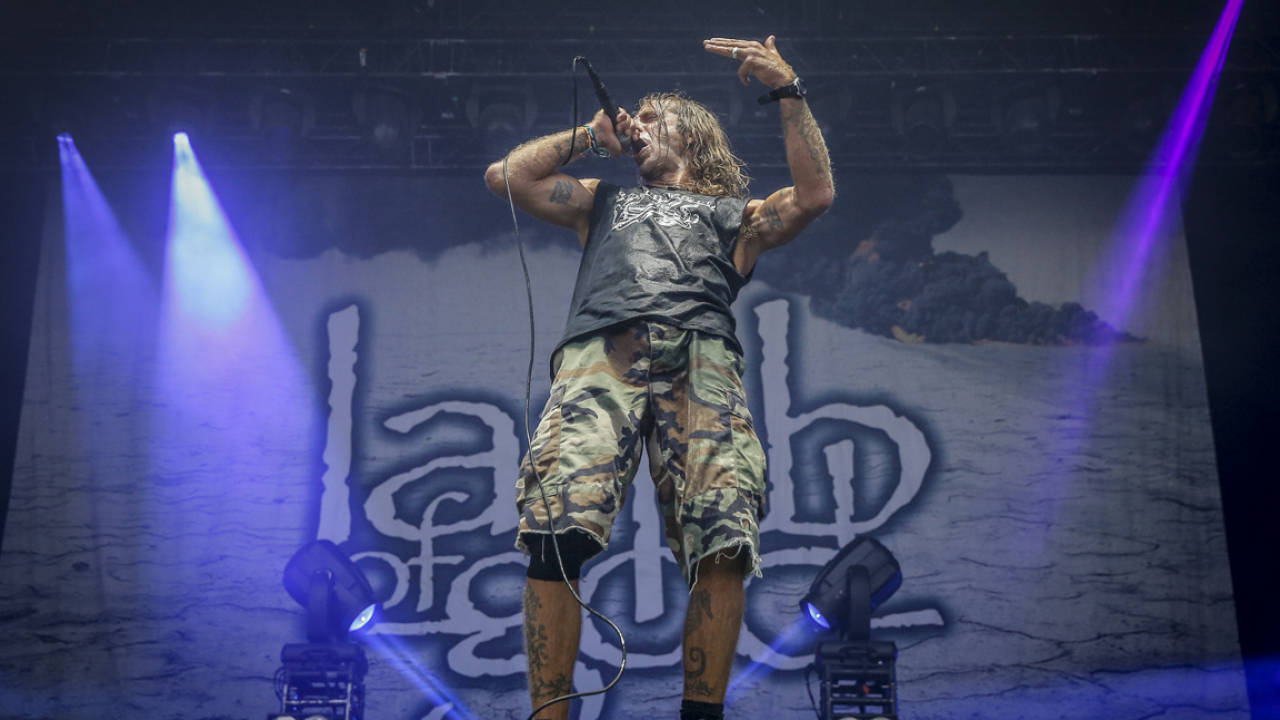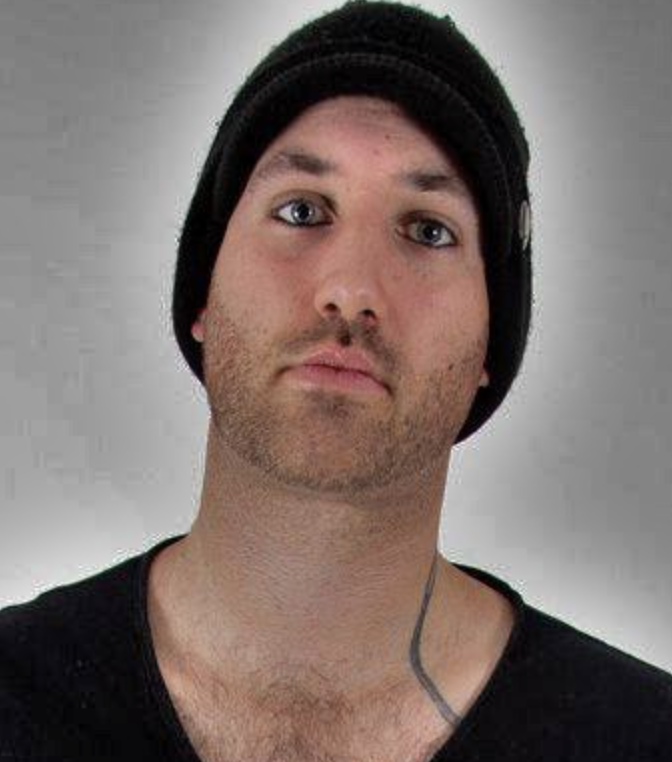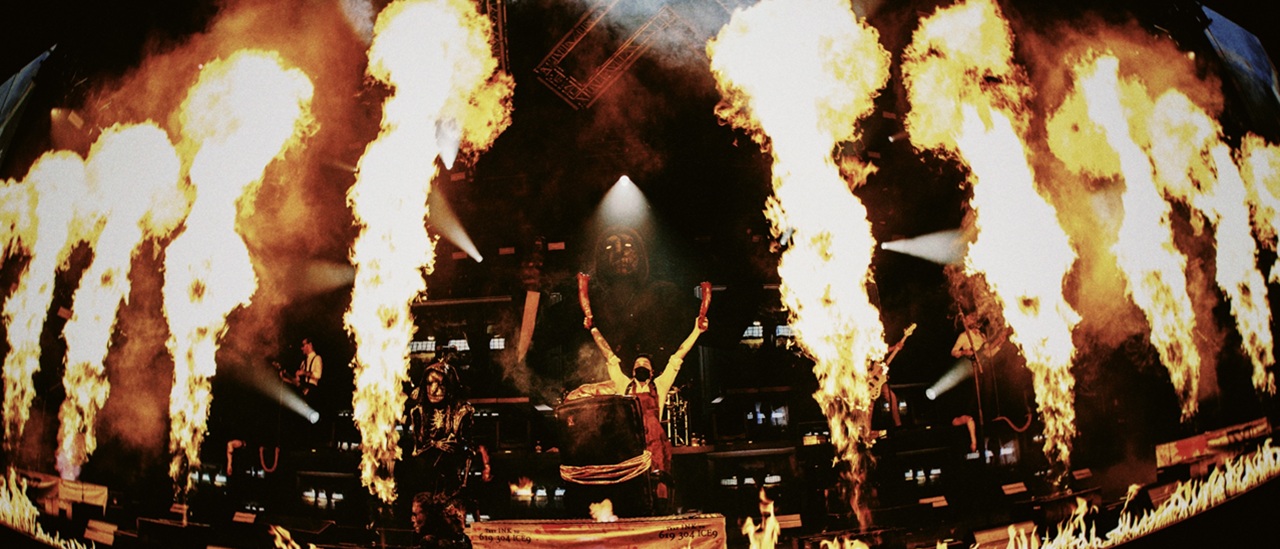The Children Of Pantera
Who are the new Cowboys From Hell?

In a recent interview former Pantera bassist Rex Brown has claimed that “Every band out there wants to be a Pantera”. And, whilst no one would doubt why you wouldn’t want to be in a band as good as the legendary Texans, we wondered how true that statement really is. So here are ten bands that took the blueprint Rex and co. created and ran with it… But not too far.
Vision Of Disorder
In reality you could pick ninety per cent of the Roadrunner Records roster of the mid ‘90s here. But VOD are arguably the first ever metalcore band, and their influence has reached far beyond the confines of the hardcore scene. They could have been just another NYHC group but added a strictly metallic flavour to their music, the kind of metallic flavour that Pantera perfected. They had an Anselmo style vocal pitbull in the shape of frontman Tim Williams and a guitarist that stood head and shoulders above his peers in the supremely underrated Mike Baumbach. Sound familiar? Need more proof? How about Anselmo himself trading screams with Williams on the song By The River from VOD’s blinding Imprint album. Yeah, that’ll do eh?
Korn
It may not seem such an obvious fit but the Bakersfield quintet and ‘godfathers of nu-metal’ might not have ever even tried their hand at making heavy music if it weren’t for the Cowboys From Hell. Jonathan Davis himself admitted as much by saying “the first metal band I ever listened to were Pantera because those grooves were so undeniable”. Sure, the riffs were technically simpler than Dime’s but the rhythms and low-end thump were staple trademarks of his playing. Korn’s commitment to making the heaviest bounce in metal was inspired by the feeling we all get from listening to Vulgar Display Of Power. And, although Davis is clearly a very different frontman and character, Anselmo’s deeply personal and relatable lyrics could well have given the Korn singer the confidence to tackle his own demons in his songs.
Five Finger Death Punch
This is probably the most obvious choice on the list. There is very little about the look, the feel, the attitude and the sound of FFDP that doesn’t scream Pantera. It’s in the swaggering, cursing, no bullshit, growl of Ivan Moody fronting the band. It’s in the enigmatic presence, originality and crusade to never rest on the laurels of guitarist and band leader Zoltan Bathory. It’s in the passionate reaction from an ever-rising number of fans around the world at their breathtakingly powerful live shows. It’s in the way they are proudly proclaiming to represent heavy metal and taking it into arenas with little or no help or interest from the mainstream culture. Frankly the similarities are scary.
Sign up below to get the latest from Metal Hammer, plus exclusive special offers, direct to your inbox!
Hatebreed
Again, another hardcore band that have been taken into the hearts of metal fans the world over. And whilst it’s the usual Slayer comparison that crops up time and time again when Hatebreed are concerned, it’s not too much of a stretch to see that they have been schooled by Pantera in many ways. Particularly in the live environment. If you’ve ever seen Jamie Jasta onstage, crew cut, viscous roar, hyper-energetic, audience in the palm of his hand, and not thought that he bares a passing resemblance to Philip H. Anselmo in the glory days of the early ‘90s then maybe you aren’t looking closely enough. And their brutal bounce can inspire some of the most violent circle pits and enthusiastic headbanging seen since the Texans were in their live pomp.
Lamb Of God
Most of the talk regarding Lamb Of God’s influences from the band themselves mentions thrash legends like Megadeth and Testament. Or Randy Blythe’s leanings towards hardcore punk acts like Black Flag or The Dead Kennedys, but the path this band has been treading for the last decade is remarkably similar to Pantera. Both bands moved away from their early sound, be it glam or death metal, toward a more groove-based approach. Both are packed with musicians that have jaw-dropping levels of expertise in their chosen instruments. Both have bothered the top end of the Billboard charts despite playing music that would give your average pop fan a migraine and a series of waking nightmares. And both have inspired rabid devotion from their huge fanbase. Good work all round then!
You can read our WORLD EXCLUSIVE interview with Randy Blythe in the new issue of Metal Hammer to find out what’s going on this year and much more.
Mudvayne
It’s not just that Mudvayne frontman Chad Gray can currently be found playing alongside Vinnie Paul in Hellyeah, although he has spoken multiple times about how much of a thrill it is for him to share a stage with a man he considers to be a legendary figure. It’s more the attempt of trying to escape the confines of an already established scene to do your own thing where the stylistic similarities lie. Pantera escaped the generic, shallow spectre of glam to create their own unique style – saving metal in the ‘90s in the process. And Mudvayne took a more progressive and technical approach to the rapidly stagnating nu-metal movement. Influenced by a whole host of bands, from Tool to Faith No More, but undoubtably relating back to the steps that Pantera took a decade earlier. As if to emphasise the point they even got rid of the make-up and silly nicknames after a couple of albums. They might not have saved nu-metal, but they certainly made it more bearable for a bit.
The Haunted
The Swedish melodeath movement of the mid ‘90s was firmly established in opposition to the rule of grunge over the rock scene at that time. And the likes of At The Gates and In Flames were obviously deeply suspicious of the newer metal bands, preferring instead to draw on a more traditional set of influences. But if there is one band that melded these two worlds, and pulled on the sheers brute force and razor sharp attack of Pantera, then it’s The Haunted. Ostensibly a thrash band, but they had a frontman in Peter Dolving who could go toe to toe with Anselmo in the rabble rousing, audience dominating stakes. They’ve been through many incarnations, lineup changes and styles in their career, but at their best The Haunted were capable of dishing out uncompromising, innovative metal that the Texans would certainly have approved of.
Devildriver
Dez Fafara toured many a tour with Pantera during his time fronting Coal Chamber and he’s spoken about the education he received watching them tear all manner of stages apart in that period. So after his spookycore exponents split up he set about making his next project heavier, less theatrical, more real, utterly uncompromising and totally blistering live… loads more like Pantera, basically. You can’t blame him really, and, although Devildriver have never really come close to matching them on record, Dez and co. are always the sort of band that take no prisoners the second they set foot onstage. All learnt from? Yup, you guessed it.
Chimaira
Essentially the entire inspiration for the new wave of American heavy metal movement of the early noughties can be laid down at the feet of Pantera. As nu-metal and emo continued to dominate the mainstream to diminishing interest from fans of genuinely heavy music, a group of bands arrived breastfed on Slayer, Metallica and, most obviously, Pantera. Killswitch, Shadows Fall and Unearth all melded these influences together, but Chimaira seemed to take only a pinch of the other stuff and concentrate mainly on creating as much groove-driven, aggression-drenched riffage as possible – with the ultra furious Mark Hunter stalking the stage on vocals the comparisons were even more startling. They changed to incorporate industrial and hardcore influences as their career progressed, but Pantera’s sound was always the blueprint from which the band based their compositions.
Stuck Mojo
Although Pantera hated rap metal, it’s pretty clear that the members of most rap metal bands loved them. A decent case can be made for Biohazard, Downset and Orange 9mm taking notes from Cowboys From Hell and just rapping over the top of what they learnt. But of the first wave of bands that mixed heavy metal with hip-hop, Stuck Mojo were the ones that had the most blatant similarities. Not only did they hail from the south in Atlanta, Georgia, which added a southern rock quality to the riffs of guitarist Rich Ward, but they never diluted the staples of heavy metal in their music to incorporate the rap element in their sound. As many of their peers did.
*This story was updated on January 8 to add the word ‘a’ to Rex Brown’s quote ‘Every band out there wants to be a Pantera.’

Stephen joined the Louder team as a co-host of the Metal Hammer Podcast in late 2011, eventually becoming a regular contributor to the magazine. He has since written hundreds of articles for Metal Hammer, Classic Rock and Louder, specialising in punk, hardcore and 90s metal. He also presents the Trve. Cvlt. Pop! podcast with Gaz Jones and makes regular appearances on the Bangers And Most podcast.
